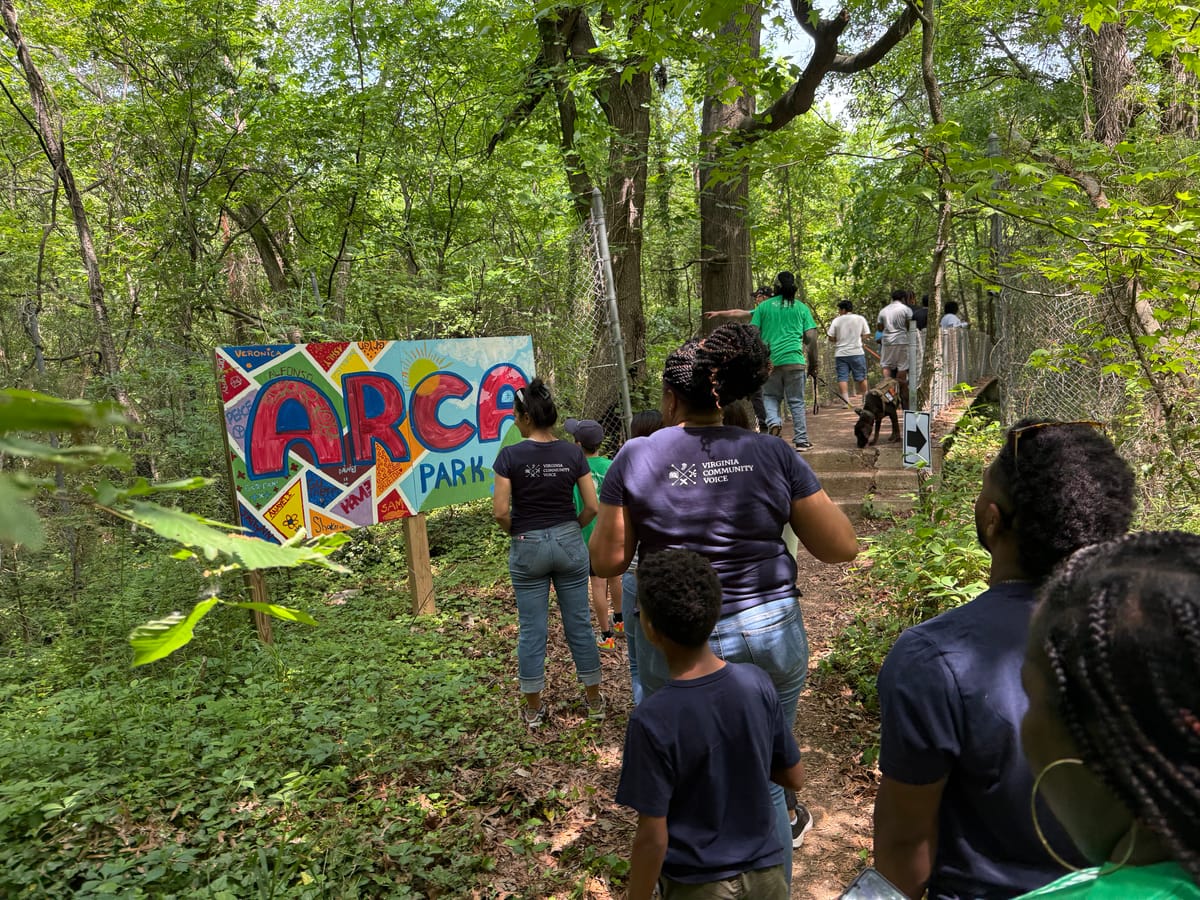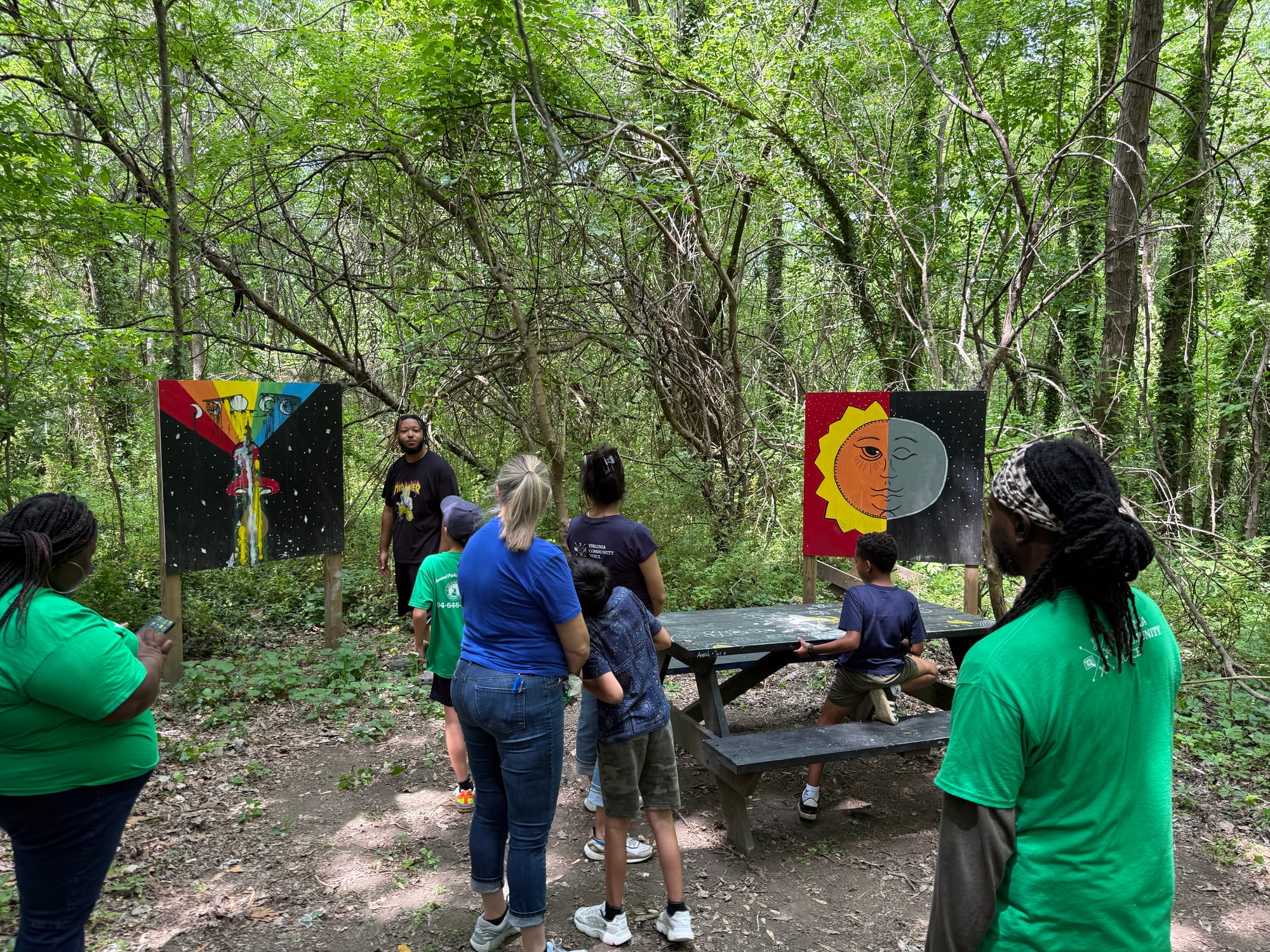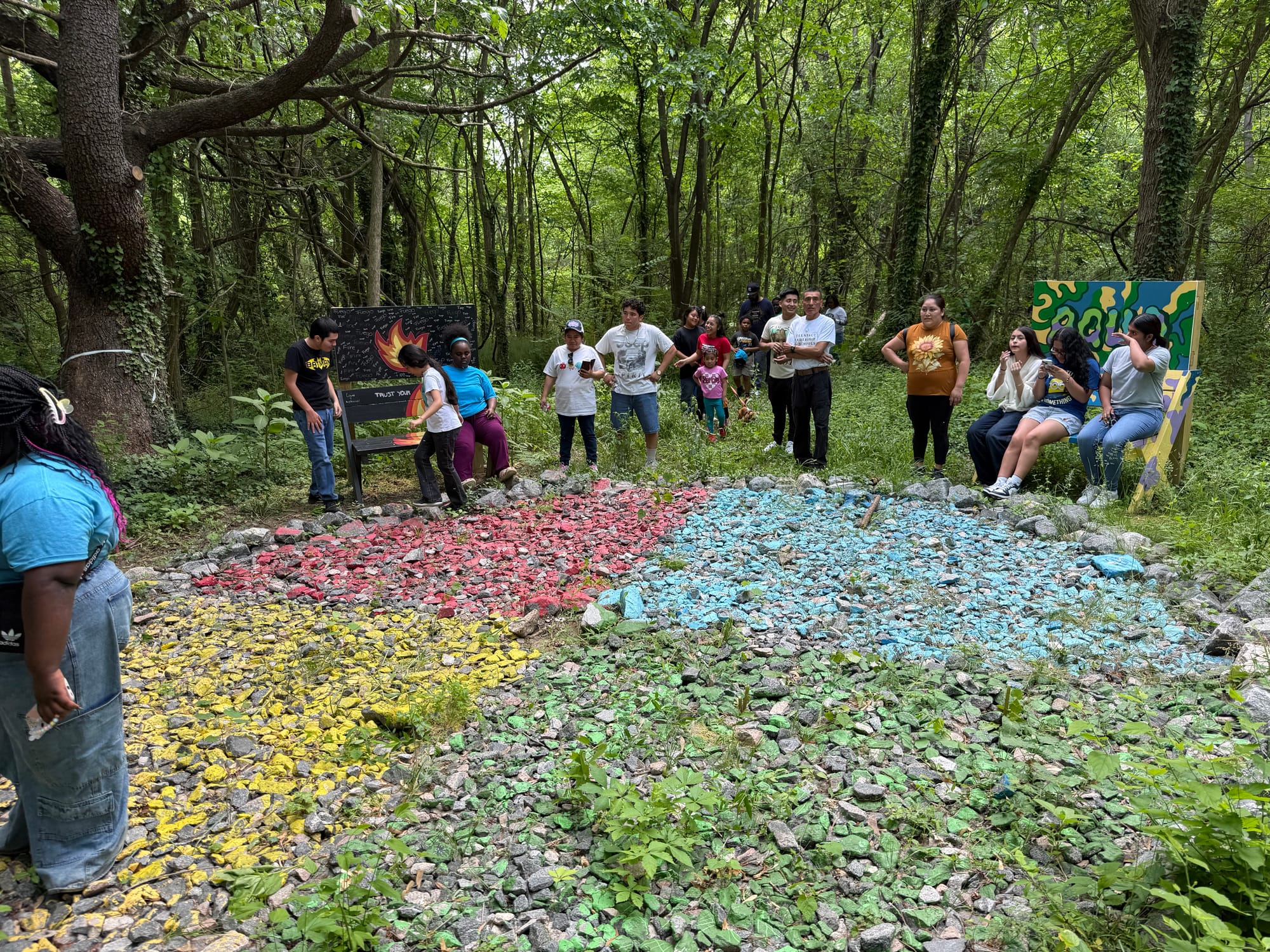Southside nonprofit has $350k federal grant canceled as turbulent funding environment continues

On Saturday afternoon, D.J. Winston led a group of about 50 neighbors on a tour of Broad Rock Creek Park.
Virginia Community Voice, a Southside nonprofit, is helping the city build out the park. The group held a block party-style event, surveying residents about what they want in the park and showcasing artwork installed in the space by members of its youth program, ARCA.
Winston, who is 18 years old, shared facts about the native plants as well as a series of murals. It’s something he wouldn’t have imagined doing just a few years ago.
“My family lives right here,” he said, pointing down the block from the heavily wooded park. “But I didn’t really know anything about this area. I saw ARCA come out here a few times, and I was like, ‘Oh, I wonder what they’re doing.’”
The group has cleared trees in the park to create a nature walk, making the space more accessible to residents.
That work was put in jeopardy just three days later, though, as Virginia Community Voice was the latest local nonprofit impacted by a federal funding cancellation. A scheduled $350,000 grant from the U.S. Environmental Protection Agency, made through the Green & Healthy Homes Initiative, was canceled by the government on Tuesday, three months after being awarded.
Virginia Community Voice had already turned in some of its receipts for reimbursement under the program, but has not yet received any money. It is the second time this has happened this year to a grant the program has been awarded — a $228,000 USDA grant was paused, and is scheduled to have its reimbursement resumed soon.
“This is money that was already allocated,” said founder and CEO Lea Whitehurst-Gibson. “To see that taken away without a lot of thought or intention or careful understanding of what it’s doing, it feels scary, and it feels intentional, and it feels very cruel.”
She noted that while similar grant freezes have been overturned by court rulings, appeals and delays still keep that funding tied up. That could disrupt cash flow and payroll at her operation, which employs 13 people and runs on slim margins.
“I feel like we’ve exhausted all of the rapid response funds, and most of those groups don’t fund the kind of work we do,” she said. “Yes, we do art in parks, and that’s beautiful, but we’re also teaching these youth how to go to City Council and advocate for themselves, how to write letters, how to engage in the civic process.”

The group has office space at Studio Two Three, which was in the news earlier in the week as it faced a second grant cut of its own.
A survey conducted earlier this year showed widespread anxiety and uncertainty among Richmond’s nonprofit community.
“We’re all kind of just looking at each other like, ‘We’ll see,’” Whitehurst-Gibson said. “It does feel like we’re all feeling the same anxiety.”
The organization works to protect the mental health of its employees, in part by taking “rest breaks” to retreat or gather socially at least once per quarter, a practice Whitehurst-Gibson recommends to other organizations.
Supporting Southside advocacy
Virginia Community Voice runs three programs, one of which is RVA Thrives, which facilitates the ARCA program.
ARCA stands for Art, Racial reconciliation and Community Advocacy. The group is unique in that it works with both Black and Hispanic youth in its service area, specifically focusing on 10 neighborhoods along Richmond Highway south of the James River, including those around Broad Rock Creek Park.
Whitehurst-Gibson said when the group first started doing community surveys, less than 4% of responses came from Spanish-speaking residents, a sign that they weren’t truly reaching all marginalized communities.
“A lot of times when that kind of thing happens for organizations, they kind of say, OK, well, either we’re not doing something right or they’re not doing something right, but either way, we’re just going to abandon it,” she said. “We tell that story transparently in our training and coaching work, because we want people to know that it is very rare that people do not actually want to be engaged.
“So we kept trying. We hired more people from different experiences, different cultural experiences within the Hispanic community … and the next survey that we did a year later, 29% of the respondents were from the Hispanic community.”
She added that it’s important for Richmond’s minority communities to work together and share experiences. She noted that the group works to end housing discrimination, but those practices might look different for different communities.
“If we build solutions to the problems in our communities without having all the nuanced voices at the table, then those solutions expire way, way more quickly than they would if we had everyone at the table making sure we were building solutions that work for everyone,” she said.

The group will launch its next fundraising campaign next week, which it is calling Fortify.
It’s a moment when the group faces an uncertain future, but remains committed to working in the communities it serves.
“I’m pretty honest with my staff,” Whitehurst-Gibson said. “I've talked with them a lot about the moment we're in, and how hard it is to be in this moment, and how much I'm working to try and navigate this moment with us and for us.”
Contact Michael Phillips at mphillips@richmonder.org.






